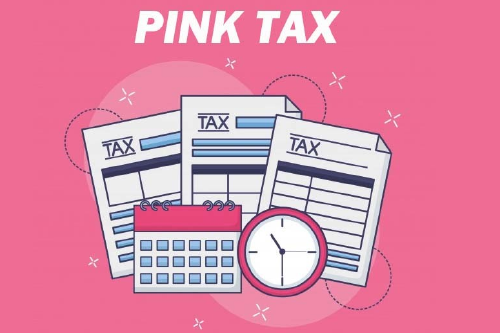Have you ever noticed the slightly higher price tag associated with deodorants marketed for women, in comparison with those targeted at men?
This trend, often referred to as “pink tax”, is where products that appear nearly identical are priced higher when targeted at women. It has spurred calls for these price discrepancies to be slashed.
While not an official levy, the pink tax is a markup on certain goods marketed to women, such as toiletries and grooming products.
Informal research conducted by the Personal Finance Platform in July 2023 lends credibility to the existence of a pink tax, revealing a price discrepancy between gender-targeted products from the same brand at the same retailer.
The research showed that disposable razors for women cost R84,99 for example, while the men’s version was priced at R42,95. Eventone day cream for women (50ml) cost R179,95, while eventone cream (R75ml) for men cost R68,95. Straight-leg jeans cost R400 a pair for women and R350 for men, it found.
Despite the SA government’s initiative to zero-tax rate menstrual pads in 2018, VAT is still levied on tampons, menstrual cups, and other related products.
Speaking to eNCA, Adele Barnard, senior financial planner and investment specialist at Sanlam, said women need to be made aware that they are paying a significant premium when they are purchasing certain hygiene and care products specifically tailored for women, which adds up to large amounts in the long run.
Barnard said research has shown that women tend to live longer than their male counterparts, and globally women earn 20% less than men. SA is also well known for having high number of female-headed households, she said.
“The reality is that back in the day lots of marketing was aimed at women because it was believed that women have the purchasing power.”
”But in today’s economy, we all need to find ways of cutting back on unnecessary spending.”
Barnard urged women to not just compare brands when buying certain care products, but to also compare the prices of female and male products.
“Buy male-marketed products if they’re cheaper. I mean if the service or the product is the same and has the same purpose, why would we pay more for something just based on the colour?”
Also buy in bulk if you can afford it; take advantage of specials and buy it in bulk. Look at the cheaper alternative and also shop around, don’t just go for the first thing that you see.
“In today’s times we’ve got access to various apps and tools to compare the different prices from different shops and retailers, and you should look where you can find the cheapest option.”
She also urged people to utilise loyalty programmes and discount points.
“Our main concern here with this discussion is the fact that as a female I’m likely going to live longer, so save wherever you can,” she said.
Barnard said because pink tax is not an actual tax, there are no specific laws in place to regulate it.
Article: The Citizen





